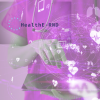
Healthe-RND: Toward a telemedicine model for Huntington's and rare neurodegenerative diseases
15/01/2021
COVID-19 quickly disrupted customary clinical practices. Within few weeks, as quarantine and social distancing became the norm, in-person medical appointments became increasingly sporadic and were replaced by those conducted with audiovisual tools. In doing so, telemedicine, hitherto on the margins, became protagonist.
A new context, which has made necessary the reorganization of the NHS and the approval, last December 17, of the document entitled "National indications for the provision of services in telemedicine", as a unitary national reference for the implementation of telemedicine services.
In this way, telemedicine services have formally become health services, priced and reported (and also subject to ticket) in the same way. This is a revolutionary change for the NHS that has been greatly accelerated by the fact that the pandemic has highlighted the inadequacy of the healthcare resources available and the difficulty of accessing them.
For many rare diseases, there are few specialists at the national, or even global, level. As a result, patients are often forced to travel long distances to obtain adequate medical care. These journeys involve expenses, absences from work and logistical obstacles, which become increasingly difficult to sustain as the disease worsens. For people suffering from a rare disease, especially if it is neurodegenerative (and therefore subject to progression), the possibility of breaking down the physical distances that separate them from the specialist or clinical center of reference, represents a valuable resource.
The European E-Health Care Model for Rare Neurodegenerative Diseases (Health-RND) is the first telemedicine project on Huntington's disease, approved under the European program JPND (Joint Programme - Neurodegenerative Disease Research) and conducted by a consortium of six research centers from six different European countries: Charles University in Prague for the Czech Republic, Bloomfield Hospital for Ireland, IRCCS Casa Sollievo della Sofferenza for Italy, Leiden University Medical Center and Huntington Center Overduin for the Netherlands, ULM University for Germany, and Galen Research Institute in Manchester for the United Kingdom.
The project sees in telemedicine an opportunity to provide the best possible care: multidisciplinary, personalized, appropriate, adapted to the different stages of the disease. In this scenario, Huntington's disease is taken as a model, as a forerunner, also for other rare neurodegenerative diseases, to which the telemedicine tools that will be developed at the end of this project, will be extended and applied.
Healthe-RND foresees the presence of a "Family and Patient Expert Panel". A panel representing patients' requests, coordinated by the European Huntington Association (EHA) and composed, for each country, by an Huntington organization and an organization representing another rare neurodegenerative disease.
The Italian Huntington's Research League Foundation is a partner representing the needs of Italian patients, together with the FSHD, Federation of Facio-Scapulo-Humeral Muscular Dystrophy.
The patient is the best colleague we have Bion (1983)
Not only the organizations, but also individual patients (and their caregivers) have a central role: through interviews, questionnaires, exercises and focus groups they will be the ones to bring out the needs on which to elaborate the working tools and on which to build a tailored and specific telemedicine platform for Huntington's and other rare neurodegenerative diseases.
For more information about the project, visit https://healthe-rnd.eu/.
If you are interested in participating, please write us at info@lirh.it.